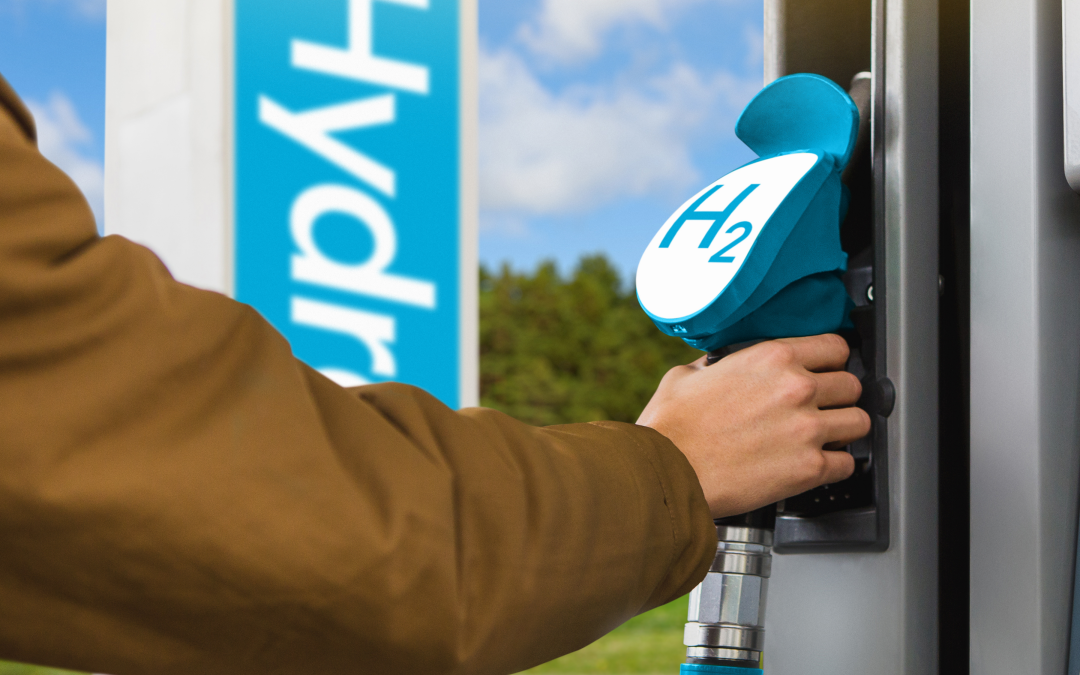Hydrogen has been called the “answer to the UK’s goal of achieving the Government’s net zero targets”. The ‘UK Hydrogen Strategy’, published by the Government, states that “as a result of its geography, geology, infrastructure and capabilities, the UK has an important opportunity to demonstrate global leadership in low carbon hydrogen and securing a competitive advantage. Building a hydrogen production capability and enabling it’s use across multiple sectors will be critical for developing domestic capacity and capabilities and securing green jobs across the UK.” With the UK working towards a global goal of decarbonisation, hydrogen is sure to become one of the main fuel sources between now and 2030.
Airline EasyJet announced this week that they will be collaborating with Cranfield Aerospace Solutions (CAeS) on the development of a zero-emission airplane, specifically aiming to develop a hydrogen fuel cell propulsion system for commercial flight.
EasyJet as a company have long had an interest in decarbonising their business and air travel in general, as the UK’s air travel accounts for 22% of all the harmful emissions from transport. The CAeS aircraft (a 9-seater airplane) is projected to make its first flight by 2023 but collaborating with EasyJet will help to envision how this technology can be scaled up to fit a major airline company. EasyJet, and its collaborations with Airbus, Rolls-Royce, and Wright Electric, are optimistic that they will be flying customers on hydrogen-combustion planes by the mid-2030s.
In June of ’21 Mayor of London Sadiq Khan announced England’s first ever hydrogen double decker buses. Hydrogen fuel cell batteries do not produce harmful emissions – when the hydrogen fuel cell reacts with oxygen in the air, the only by-product is water. The buses, which are already on London streets, join over 500 electric buses which together support help the objective of a fully decarbonised London bus network. The hydrogen-powered buses were manufactured in Ireland by Wright Bus and the hydrogen fuel cell battery pack can store up to 48KWh, which allows a maximum travel distance of 280 miles. Furthermore, the hydrogen used in these fuel cells is produced using renewable energy, meaning that the carbon impact of producing these buses is also significantly reduced.
Exciting developments have also been made in hydrogen-powered trains, with Porterbrook’s HydroFLEX project, the UK’s 1st hydrogen-powered train, and the first ever retrofitted hydrogen train. HydroFLEX was debuted at COP26 in Glasgow late last year. The train works by housing cylinders of hydrogen fuel, which is then combined with oxygen in the air which, in turn, charges the battery. As a result, the train does not rely upon fossil fuels which produce harmful emissions.
Progress is also being made in the realm of hydrogen powered cars, with two mainstream vehicles already on the market (Toyota Mirai and the Hyundai Nexo). Manufacturers such as BMW, Land Rover and Vauxhall have also committed to the production of hydrogen powered cars within the next 5 years as part of their efforts to support the decarbonising of Britain’s roads. However, as with electric vehicles, improvements to the UK infrastructure will be needed to support these initiatives. For example, the construction of hydrogen fuel stations will be necessary to support the nationwide introduction of this technology. There is an expectation that hydrogen and electric cars will work in tandem, whilst electric cars are currently more popular, hydrogen is the cleanest possible fuel and electric cars require lithium-ion batteries, whose production is labour, time, and emissions intensive.
As the global demand for alternative energies grows and hydrogen becomes a driving force in this market, Orbital Fabrications’ expertise in manufacturing customer gas handling systems is perfectly suited to address the technical demands of managing high pressure hydrogen, safely and securely, to be used as a fuel source. When working with pressures of 700 bar and above, it is vital that your hydrogen handling solution is manufactured, tested, and fully certified to ensure safe and trouble-free deployment in the field.
Once your system is manufactured, the Orbital Fabrications’ validation process includes full system leak test utilising helium mass spectrometers that provide extremely sensitive leak detection rates, down to ppm levels. We also validate your entire system way above the normal operating pressure; with the capability to pressure test to over 1000 bar where the application makes this appropriate. Our testing and validation processes all ensure the entire system is certified as safe for use in the field.
Orbital Fabrications has over 30 years’ experience in orbital welding services and is an industry expert in stainless steel TIG welding, Inconel welding and orbital tube welding. Our experienced team can weld tubing to fabricate components for the aerospace, pharmaceutical and oil and gas industries. We are committed to continuous investment in specialist equipment that enables us to manufacture high quality modules and complete system builds using stainless steel and high nickel alloys for one off fabrication, prototyping, and batch work through to continuous manufacturing volume production. Our engineering know-how and advanced manufacturing capabilities allow us to meet the ever-changing demands of the sectors we supply.
